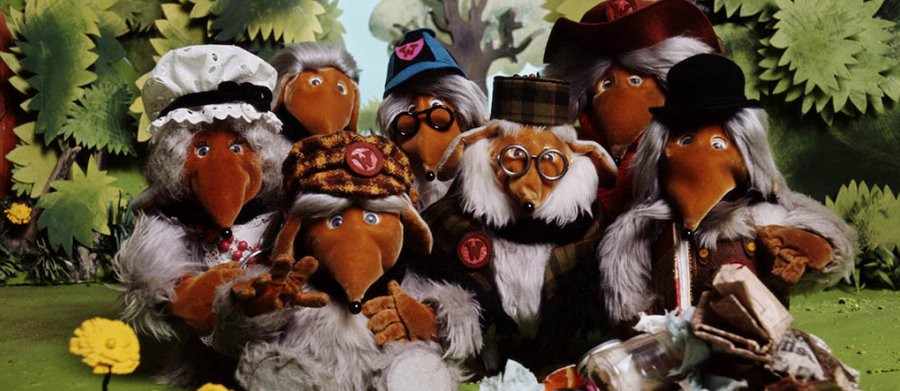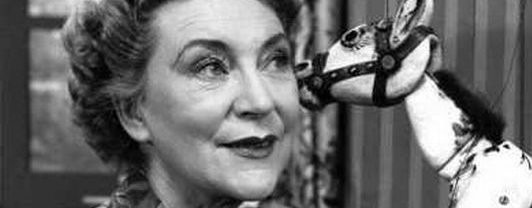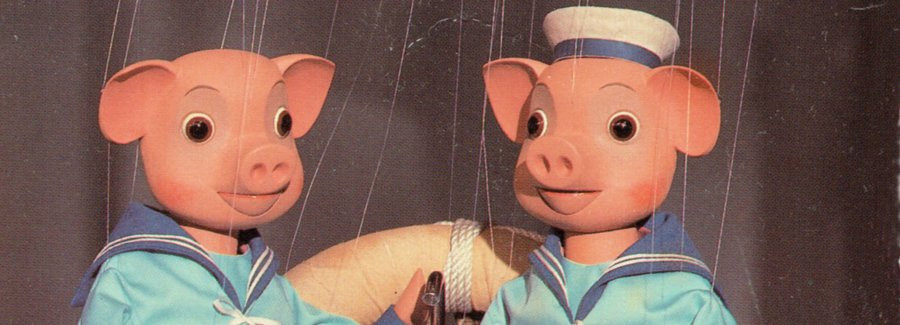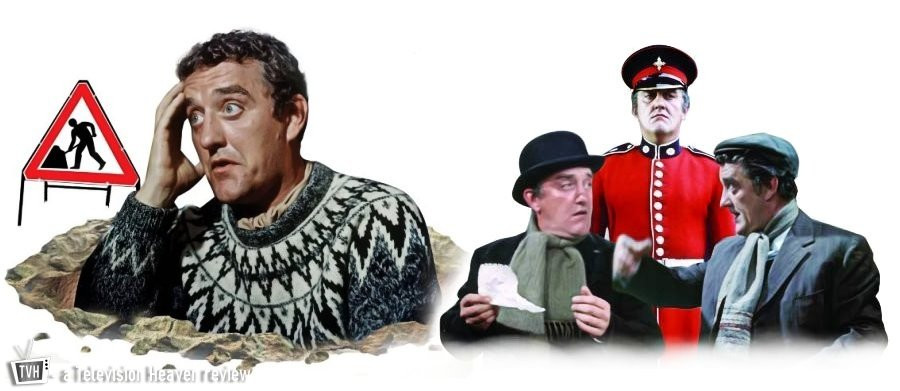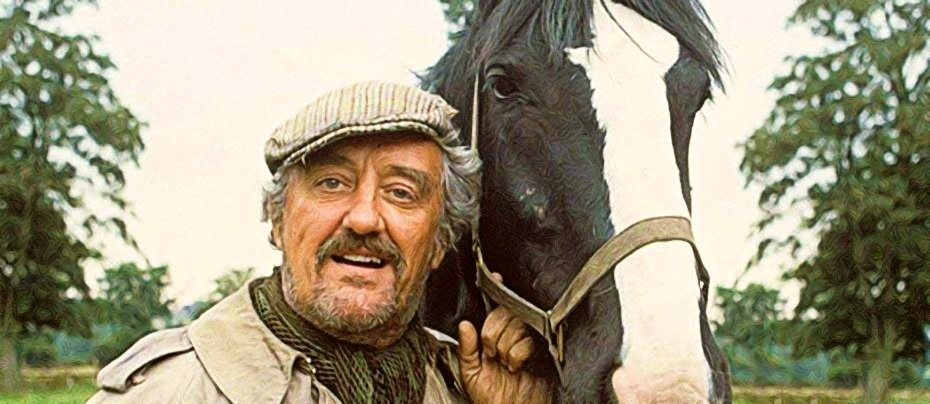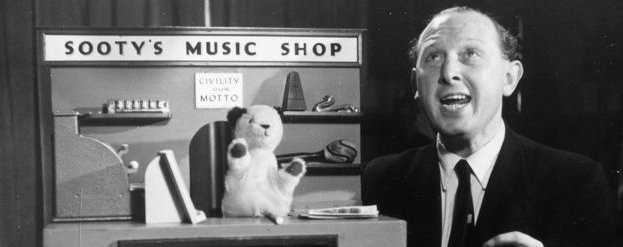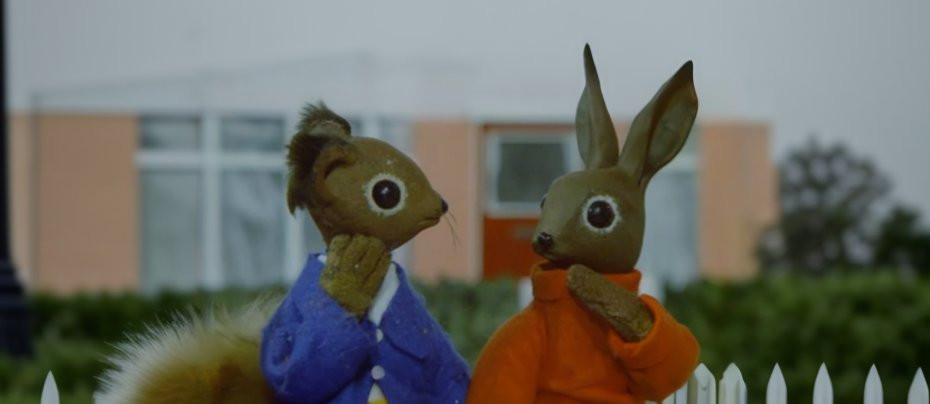
Tufty
Article by John Winterson Richards
Tufty the Squirrel, or Tufty Fluffytail if you want to be formal about it, is an early example of a successful multimedia franchise. Tufty did not begin his career in television. He was already the star of a number of books, and a great deal of other promotional material, put out by the Royal Society for the Prevention of Accidents (RoSPA) when, in 1973, he was seconded to the Central Office of Information (COI) for a series of short Public Information Films (PIFs) aimed at young children.
Despite his looks, Tufty was actually quite old for a squirrel by that point, having been born in 1953. His real mother was not in fact Mrs Fluffytail but Elsie Mills, later MBE, who was working on child safety initiatives for RoSPA. She was evidently much influenced by Rupert Bear and Enid Blyton's recently published Noddy books. With his trademark blue jacket and yellow trousers - a constant until the colours were swapped around in a misconceived "updating" a few years after the PIFs - Tufty became the focus of his own Tufty-verse of anthropomorphic animals including his (screen) mother Mrs Fluffytail, Bobby Brown Rabbit, the naughty Willy Weasel, Harry Hare, Minnie Mole, Mrs Owl the teacher, and Mr Policeman Badger.
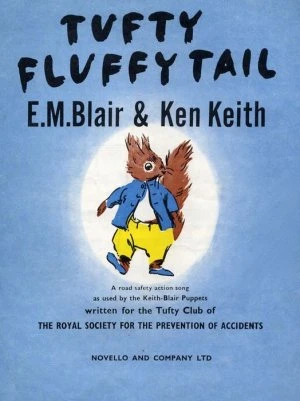
They featured in about 30,000 Tufty books illustrated by artist Kenneth Langstaff and distributed by RoSPA. However, Tufty's big break came in 1961 with the formation of the Tufty Club. Within a year there were 60,000 members and within five years there were 2,000 affiliated clubs.
At this point, given the current crisis in journalistic ethics, full disclosure obliges your reviewer to reveal he has vague memories of having joined the Tufty Club himself, not that those memories extend to doing anything with the Club. Forget about the Freemasons, the Illuminati, and the World Economic Forum, it is the Tufty Club that has members everywhere, including positions of influence, to this day.
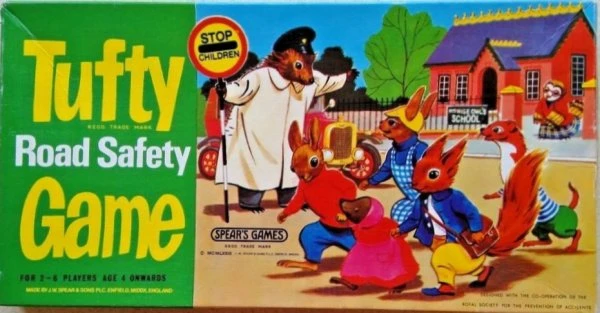
It was already well established, with 2,000,000 members, even before the PIFs. In 1973, the year of the PIFs, it grew to 10,000 affiliated clubs, peaking at 24,500. It really did save lives. After its first year Brigadier Stoney, the Director General of RoSPA - retired Brigadiers tended to get such jobs back then - reported that the Club had made a real difference to the number of fatalities among the under fives, which had dropped by fifty over that year. A more scientific study by the Government's Transport and Road Research Laboratory in 1973 confirmed that Tufty made an ongoing contribution to a definite downward trend.
In this context, it is no surprise that Tufty, as a well established brand credited with saving lives, was given the full star treatment when he made his television debut - in sharp contrast with his colleague and rival Charley the Cat, whose own PIFs, which came out the same year, were literally a cut and paste job. For Tufty, the COI splashed the cash by commissioning six films from the animation studio Stop Motion, using the same style of, er, stop motion with three dimensional models that they used in Camberwick Green, Trumpton, and Chigley.
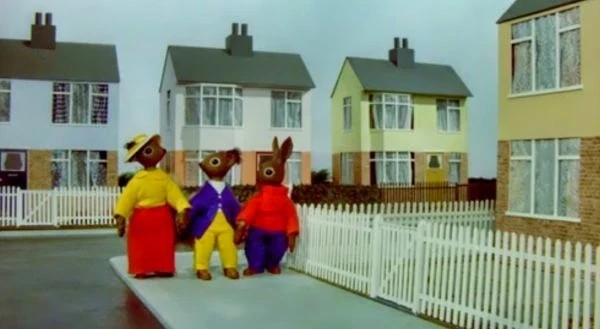
The narration by Bernard Cribbins must have added to the expense. The job came at a pivotal point in his career. He had been very much the coming man in the Sixties with the juvenile lead in a number of successful British films and unexpected success as a "pop star" with three novelty songs in the Top 30 - one of them, strangely, a calypso written by the distinguished Shakespearean actor Trevor Peacock. However, the British film industry as a whole began to lose its way towards the end of the decade and there were fewer opportunities for Cribbins. He moved successfully to a character role in The Railway Children and his work on Jackanory - where he became the storyteller invited back most frequently - demonstrated the potential of the distinctive voice that kept him in the public mind as the leading roles dried up.
His narration of the Tufty PIFs happened to coincide with the beginning of The Wombles, his most memorable voice role, so it seemed that there was no getting away from him in 1973 - not that anyone would have wanted to: he is simply perfect in both productions. His intonation in the Tufties is childlike without becoming cloying. He pulls off the very difficult trick of sounding sympathetic while not talking down to the children. It is a masterly demonstration of the voice actor's art. It is hard to imagine anyone else pulling it off.
Although six films were commissioned, most of the "complete" Tufties online have only five. However, we take our research seriously at Television Heaven and our Editor managed to track down "The Lost Tufty" on the BFI website, no less. This is the one in which Tufty and Mrs Fluffytail find a safe place to cross the road and may have been conflated with the one in which they actually cross the road.
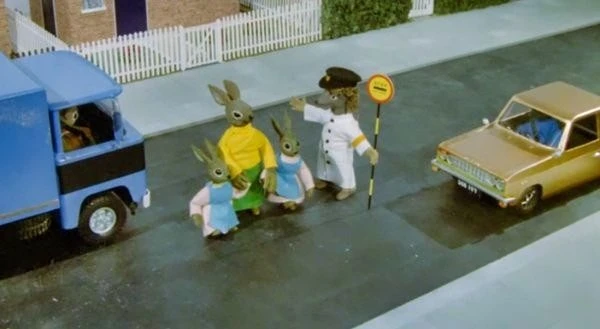
Although associated primarily with his work on road safety, Tufty was from the beginning intended to promote child safety in general. For example, one early campaign warns children against picking up things in the street - they might look harmless, but they could be very dangerous. Quite right.
The common notion that the Tufty PIFs were associated with the later "Green Cross Code" is a false memory. They were in fact commissioned during a transitional phase between an earlier campaign, the militaristic "Kerb Drill" - probably the brainchild of another retired Brigadier - and the more famous Code, and Tufty was in any case always aimed at younger children than both of those campaigns.
Yet by 1973 even toddlers were beginning to get a bit more cynical. Tufty, like much of Stop Motion's work, was a nostalgic evocation of a Britain that was passing. The quiet roads, the empty pavements, and Mummy always being there were by no means typical of the lived experiences of all children in the 1970s. Even the clothes were old fashioned (was Tufty's distinctive outfit a witty subtle reference to the traditional costume of 18th Century Whigs or is this overthinking an animation about a talking squirrel?).
If the Tufty PIFs now seem very innocent in some ways, they are quite brutal in others. Willy Weasel is knocked down not once but twice, even though he is shown as suffering no real injury (which even then had your reviewer wondering if Willy was running some sort of scam: he had that look about him - or possibly this is just an unhappy racial prejudice about weasels after seeing what they got up to in The Wind in the Willows). Nowadays health and safety experts might question whether this was the right message to send to children, that a road traffic accident is not really that serious. They would certainly disapprove of the message that the correct way to provide first aid to an RTA victim is to haul him to his feet as Mr Policeman Badger does with poor Willy.
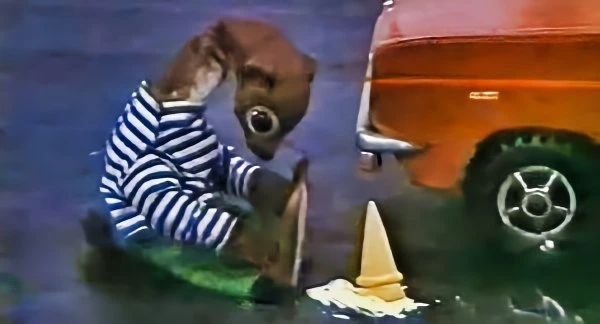
Still there is no denying Tufty's impact - sorry, Willy - on popular culture. He was second only to Charley in a 2006 BBC poll to find Britain's Favourite PIF and in 2007 had a memorable, if slightly bizarre, cameo in Life on Mars. No one around in the Eighties, at least no who grew up in Britain in the Seventies, could have failed to recognise him.
Published on April 16th, 2024. Written by John Winterson Richards for Television Heaven.


